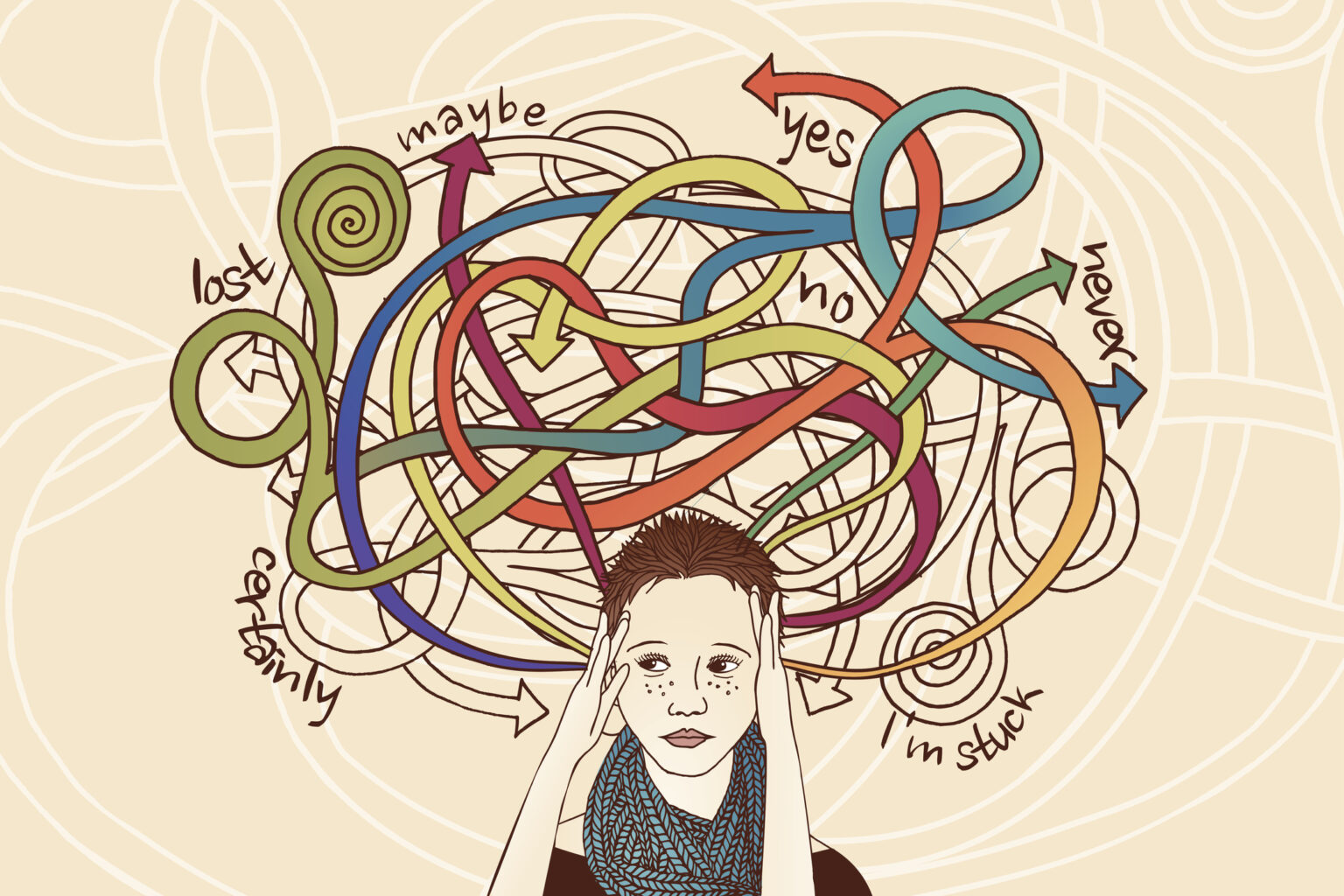We’ve all spent time contemplating something, following our train of thought, and being astonished by its impermanence and transitory nature. How quickly we start thinking about little things and don’t stop until we have invented scenarios, events, and predicaments that were not existent at the start. These ideas irritate us, make us unhappy, and distance us from reality. Overthinking may become a habit, impacting our mental health and well-being.
Devina Kaur, a radio DJ, producer, and author of Too Fat Too Loud Too Ambitious, offers a few pointers to consider if you have a habit of overthinking and want to break it.
Embrace yourself.
It is constantly suggested to disconnect from the outside world and focus more on oneself and one’s ideas. Spending time with our thoughts is vital for getting to know ourselves better, but spending too much time with them may be harmful. Overthinking may be addicting, and it might be difficult to quit it all at once, but you can make attempts to recognize and comprehend your ideas. Once we understand our train of thought and how much time we spend with them, we can begin to categorize them as productive or unproductive. We can then make more conscious decisions.
Accept your worries and your past.
Overthinking is sometimes caused by our worries and prior actions. Humans have a tendency to hold regrets and remorse from our past. Something that happened a few years ago still has an impact on us and haunts us. Accepting your shortcomings, weaknesses, and anxieties is one step toward overcoming overthinking. When you begin to see yourself in the light of your true self, not tainted by your past and imperfections, you progress toward accepting yourself. Over time, you will also learn to focus more on the present and not brood over what has already happened or something that we do not have the power to change.
Stress and negativity should be released.
We overthink because we are surrounded by negativity and stress has accumulated in our bodies. We should look for ways to relieve the strain that has built up in our bodies. It is recommended that you meditate before going to bed at night and analyze your day; enjoy the wonderful things that have occurred to you and learn from your faults rather than holding on to them. Exercising and contemplative sessions have really helped me in a variety of ways.
Therapy using mirrors
Self-doubt is one of the adverse consequences of overthinking. Our self-doubts make us unsure of our options and prevent us from making any decisions. Mirror therapy is one method for overcoming self-doubt. In mirror therapy, tell yourself that you are a confident person; compliment your body and mind—the quality of your ideas; and remind yourself of your inner seductive brilliance. Instead of recognizing flaws, you’ll notice positively in yourself and feel more comfortable and secure in your own skin than ever before.
Anyone may become engrossed in overthinking. Fortunately, there are numerous mental strength exercises you can take to shift your brain’s focus away from overthinking and toward a more healthy perspective.
According to research, allocating time to worry might help reduce overthinking. Rather of worrying all day, every day, you may limit your worrying to 15 minutes every day.
You may alter your thinking and take measures to replace overthinking with more constructive self-reflection and problem-solving with minimal effort. You whether that’s because it’s already happened, may never happen or simply can’t be changed. Beware of these negative thoughts and consider working towards letting them go.will regain your brainpower, energy, and time as a result.If your thought pattern can’t be made more constructive, you’re likely dwelling on something out of your control













